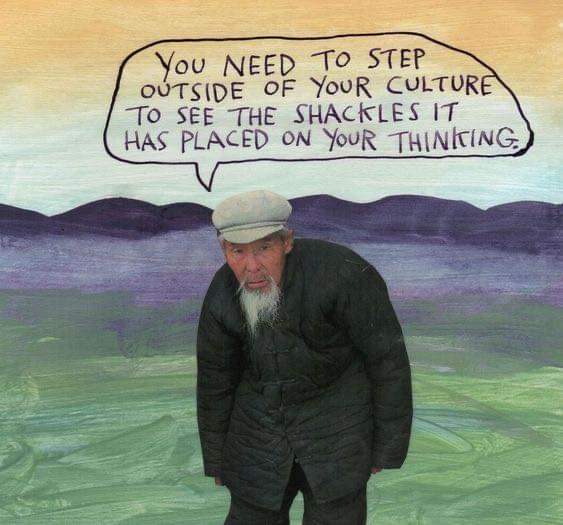
It’s been going on for the last few years, let’s look at a current example. Live at c-base is a #Fediverse event that highlights the need for composting the dogmatic #fluffy mess making to keep balance in our shared #openweb reboot. With our #fluffy crew talking about the shared reboot, on the surface it looks positive – friendly conversations, smiles, the right hashtags – but underneath it reveals a deeper problem: there is zero balance at these events. This is the third event I’ve seen with the same issue: the same small group, the same narrow framing, the same blindness. It is not healthy. It is not balanced. And it is not a good path to stay on.
What we are seeing, again and again, is a kind of #blinded #blocking. A narrow circle, reproducing itself, shutting out the very people who dug the digital soil for the seedling stage of the current #Fediverse growth. Sadly, #blindness and #blocking makes these people prats, not because they don’t care, but because they can’t see beyond their narrow bubbles.
Composting the mess, we need to be honest here. We all make messes in movement spaces, and the only way forward is to compost these messes. Composting means breaking down what is toxic, unbalanced, or self-serving and transforming it into nutrients that can grow something better. If we ignore the problem, the mess just piles up until the whole project smells. If we compost it, we can build soil, roots, and future growth.
Where’s the hope? Right now, hope is hard to see in these paths. A purely #fluffy approach – friendly, soft, smiling – is good for atmosphere, but it slides into dogmatic blindness. Fluffy alone does not challenge power. Fluffy alone does not create balance. Fluffy alone does not compost.
What we need is spiky/fluffy. We need the warmth of fluff but also the edge of spike, the courage to challenge, to draw lines, to say when things are going wrong. Without this, we share the same blindness, wrapped in smiles and funding applications. One thing that might explain this narrowness is that we are in the middle of a generation change. The original crew who put real work into growing the #Fediverse in its seedling years are no longer invited, and the real problem is that to this new fluffy crowd the last generation are mostly invisible.
Looking at the Berlin Fedi Day schedule the only person I recognise from that seedling stage, that built the current working reboot is Christine Lemmer-Webber, and they were always firmly within the #NGO-fluffy camp. Everyone else? New faces, from before, like Evan Prodromou who played no role in the atavism of the seedling stage or the people from after ??? Who to often bring the #NGO and funding paths that is at the root of current mess making.
One such event would be understandable. But three in a row? It looks less like an “accident” and more like a PRAT move, hardcoded fork of our shared project. A fork that speaks with arrogance “for all of us” while shutting out the #spiky voices of the community who helped built the current #fedivers path. Towards balance, where do we go from here?
- Name the mess: We can’t fix what we won’t face. #blinded #blocking is real, and it needs to be called out. This is what I am doing here.
- Compost, don’t cancel: These are not enemies, just our #NGO, #fashionista in need of wider perspective. We don’t waste energy and focus in burning them out; we compost their mess into fuel for growth, they are a part of the debate.
- Spiky/Fluffy events: The next gathering should explicitly mix both tendencies. Spikiness to challenge, fluffiness to care. That balance is the only way to keep hope alive, let’s not be prats on this, please.
- Reconnect with roots: We need to bring back more of the seedling stage #Fediverse builders and seedling voices, not as nostalgia but as grounding. The roots matter if the tree is to grow.
- Expand the circle: No small group should speak for the whole. Open doors, open process, open web. #4opens. A part of this is embedded in the closed funding of these events and process.

Final thought, right now, what we’re watching is real prat behaviour, dressed up in smiles and #NGO funding. That’s a dead end. If we want the #openweb reboot to be more than another hollow fad, we need balance, humility, and compost. The fluffy mess won’t compost itself. That’s our job.
You likely need a shovel #OMN to work on composting. Or if you want to continue with this kind of mess making then clearer naming the events for the minority they invite and host would help to make less mess, a few #NGO groups have started to do this like #FediForum and the #SWF now have less imperialistic language, which is at least is a little less blinded.
#fediday #c-based









